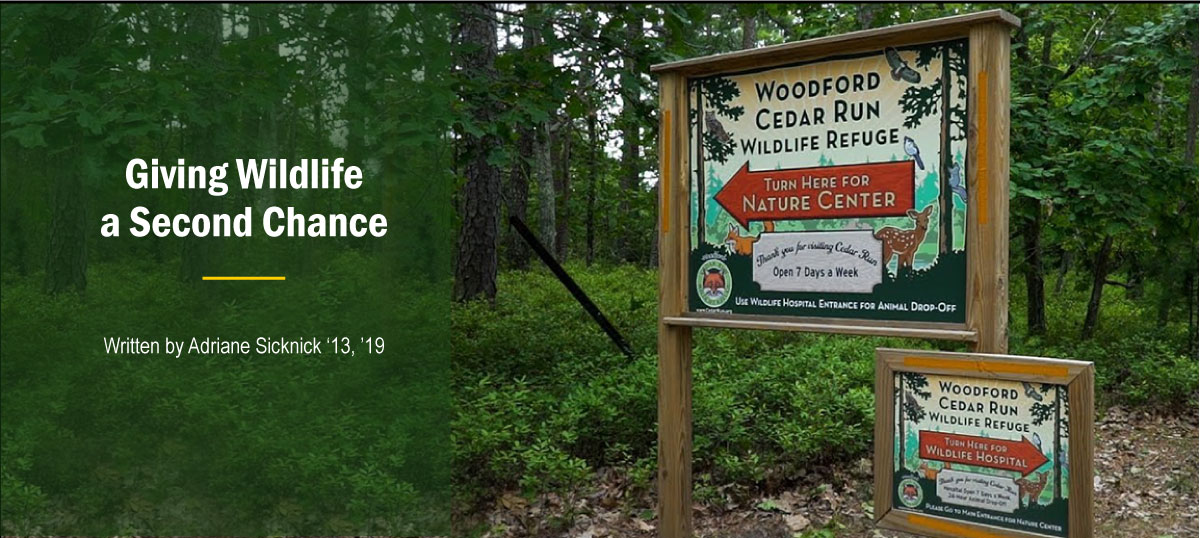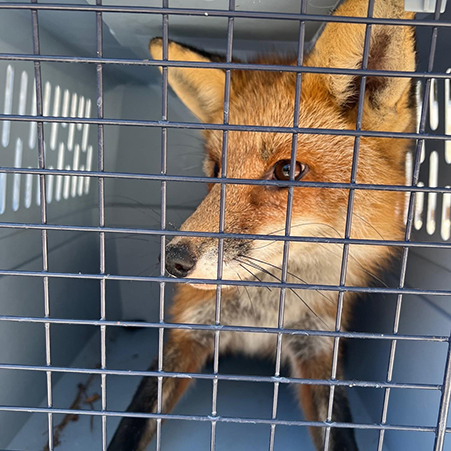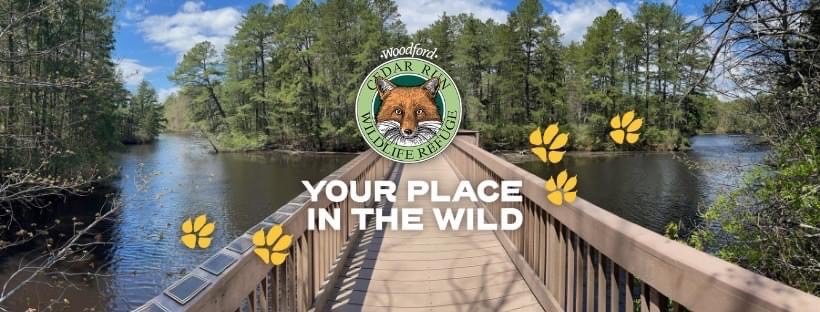Fall 2022 Issue

Photo credit: Woodford Cedar Run Wildlife Refuge
Michael O’Malley ’12 was fortunate to have a family that enjoyed spending their vacations outdoors. His explorations of the natural world over time turned into a love of nature. As a child, it never occurred to him that he could turn his passion into a full-time career until he took an AP environmental science class during his junior year in high school.
“My teacher taught us about the different careers in environmental science. I wasn’t sure what I wanted to do, but I knew I wanted to do something in the field,” he explained.

After researching different environmental science programs, O’Malley learned there were plenty available at different universities, but none compared to Stockton’s program. “There's a beautiful habitat [on the Galloway campus] with lots to see and explore. I really loved being able to go out into the woods and learn hands-on,” recounted O’Malley.
As an Environmental Science major, O’Malley took a Wildlife Ecology course which required
a lot of fieldwork. “This course helped me with the wildlife aspect of environmental
science – wildlife ecology, management and rehabilitation. It convinced me to go down
this path [of wildlife rehabilitation],” he explained.
Coming Full Circle
The Woodford Cedar Run Wildlife Refuge is a non-profit wildlife haven sitting on 171 acres on the edge of the Pinelands in Medford. Jim and Betty Woodford bought the property in 1951 initially to use as a summer getaway before building a permanent residence on the property in 1957.
As a local naturalist, botanist and photographer, Betty used the property as a tool to educate students and members of the community on local flora and fauna. In 1957, a local resident found an orphaned baby Great Horned Owl and brought it to Betty for assistance. She rehabilitated the owl out of the garage of their home. This is the event that is said to be the beginning of the refuge.
Growing up in Camden County, O’Malley’s family would often drop off injured and/or orphaned wildlife found on their property and on the road to the Woodford Cedar Run Wildlife Refuge for rehabilitation. He could never imagine his path would come full circle with the sanctuary a little over a decade later.
[Interning] is a great way to have full immersion and test the waters - get hands-on experience to see if this is what you want to do as a career,” O'Malley explained excitedly.
“Cedar Run offers a variety of internships which are specific to an area of specialty – such as wildlife care, environmental education, and marketing and development. I started as an animal care intern the summer before my senior year [at Stockton] to earn credits for my program,” O’Malley explained. “I was doing hands-on wildlife rehabilitation under the direction of licensed wildlife rehabilitators. I was treating the injured and orphaned animals that come into the wildlife hospital and giving them a second chance in the wild. I fell in love.”

When his internship ended, O’Malley’s time at Cedar Run wasn’t over. He stayed on as a part-time evening shift manager in the wildlife hospital. It was during this time he spoke with the director about his ambitions. She took him on as an apprentice so he could pursue his license as a wildlife rehabilitator. He explained, “to get licensed, you need to apprentice with a state-licensed wildlife rehabilitator for a minimum of 200 hours and one year. State licenses are issued to a specific location, and I'm operating as a licensed wildlife rehabilitator out of Cedar Run, so inspections are done on the facility with the individual to ensure proper training and facilities,” he clarified.
Starting in 2015, O’Malley served as the Assistant Director of the Wildlife Hospital and Volunteer Coordinator and was named as Executive Director in January 2021. Today, his work is administrative, focusing on development, financial operations, fundraising, and overall management. He explained, “I’ve had my hand in different specialties at Cedar Run. The same opportunity is available for students through our internship program. You’ll focus on one area for three months, but afterward, there are opportunities to volunteer in other departments.”

The Nature Center and hiking trails on the Cedar Run property are open to the public seven days a week. During your visit, the staff will educate you on the local ecology and the importance of protecting our ecosystems.
The Woodfords were treating hundreds of animals in the 1980s and had a need to build a hospital for the purpose of rehabilitating wildlife. Now we're to the point where we treat over 6,300 animals a year. It's grown exponentially over the decades,” O'Malley said.
As you make your way through the campus, you’ll meet the “wildlife ambassadors” who were rehabilitated but couldn’t be released due to non-repairable injuries or having been raised by people.
Can’t make it to Cedar Run? No need for FOMO (fear of missing out). Cedar Run will bring the ambassadors to you! The Refuge on Wheels program allows the facility to bring artifacts and animals to schools, churches, and community groups looking for a wildlife educational program.
Visit the Cedar Run Wildlife Refuge to learn more about their programs and career opportunities.



